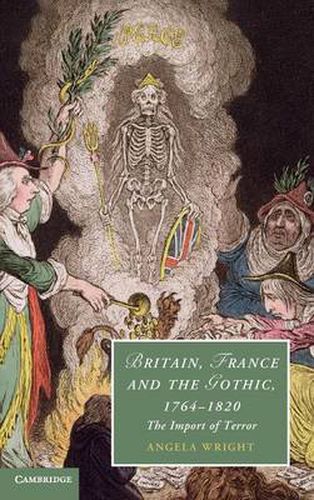Readings Newsletter
Become a Readings Member to make your shopping experience even easier.
Sign in or sign up for free!
You’re not far away from qualifying for FREE standard shipping within Australia
You’ve qualified for FREE standard shipping within Australia
The cart is loading…






In describing his proto-Gothic fiction, The Castle of Otranto (1764), as a translation, Horace Walpole was deliberately playing on national anxieties concerning the importation of war, fashion and literature from France in the aftermath of the Seven Years’ War. In the last decade of the eighteenth century, as Britain went to war again with France, this time in the wake of revolution, the continuing connections between Gothic literature and France through the realms of translation, adaptation and unacknowledged borrowing led to strong suspicions of Gothic literature taking on a subversive role in diminishing British patriotism. Angela Wright explores the development of Gothic literature in Britain in the context of the fraught relationship between Britain and France, offering fresh perspectives on the works of Walpole, Radcliffe, ‘Monk’ Lewis and their contemporaries.
$9.00 standard shipping within Australia
FREE standard shipping within Australia for orders over $100.00
Express & International shipping calculated at checkout
In describing his proto-Gothic fiction, The Castle of Otranto (1764), as a translation, Horace Walpole was deliberately playing on national anxieties concerning the importation of war, fashion and literature from France in the aftermath of the Seven Years’ War. In the last decade of the eighteenth century, as Britain went to war again with France, this time in the wake of revolution, the continuing connections between Gothic literature and France through the realms of translation, adaptation and unacknowledged borrowing led to strong suspicions of Gothic literature taking on a subversive role in diminishing British patriotism. Angela Wright explores the development of Gothic literature in Britain in the context of the fraught relationship between Britain and France, offering fresh perspectives on the works of Walpole, Radcliffe, ‘Monk’ Lewis and their contemporaries.